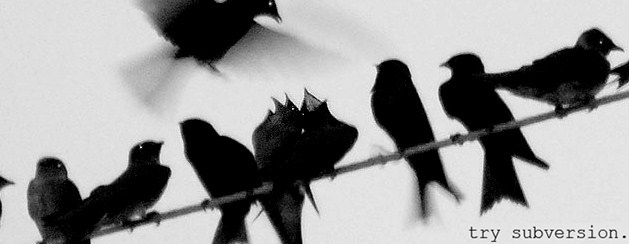
There is certainly no shortage of contemporary British bands who are striving to establish melodramatic-rock as the next big thing. The wonderfully-wistful offerings of acts such as Chapel Club, Wild Beasts and The Big Pink all contribute greatly in placing darkness and distain back on the metaphorical map, whilst maintaining a sense of beautifully frank poeticism.
It is therefore not the most impossible of tasks to understand why the masses are eagerly anticipating a Smiths-esque revival. With the current social and economic climate in Britain it was almost inevitable that our musical exports would soon take on the same shade of grey as the view from our bedroom windows. And with so many bands lining up to steal the crown of ‘most tortured soul’ from Morrissey’s head, it is hard to know just where to begin when sifting through the offerings of the melodramatic rock revolution.
Allow me then to make a suggestion. Our Lost Infantry, a pensive four-piece straight from the rolling hills of Surrey, are a band who’s ironic displeasure is expressed effortlessly by jilted observations, and melodies which see-saw from playful to foreboding.
If Our Lost Infantry’s aim is to instil a sense of painful familiarity in their listening audiences, then they have more than achieved this with the exploitation of first-hand experiences such as, ‘he fell in love once, wont make that mistake again’. Such achingly familiar material allows Our Lost Infantry to pull on the heartstrings of dejected souls everywhere, and while adopting the same lyrical approach as Morrissey, they have successfully avoided becoming Smiths doppelgangers by cultivating their own refreshingly unique and powerful sound (taking notes, Chapel Club?).
Our Lost Infantry began life as a folk-driven sextet, complete with flawless and evocative violin melodies that would make even Fanfarlo swell with jealously. However, the ejection of two original members (including said violinist) brought about the wholly organic transition into the emotionally profound powerhouse we hear today. Drummer Michael Parkin speaks of the new line up with obvious contentment: “I think we are exactly where we want to be with our line-up now. It was tough to get to where we are, but I know that every one of us gets along really well, and most importantly the music sounds how we want it to.”
A vital factor in contributing to the bands unique sound lies within the tremendously broad spectrum of influences brought to the table by each member. Sigur Rós, Blink 182, King Crimson, At The Drive-In and Radiohead are all name-checked as collective favourites, and offer such diverse inspiration that the end product could not fail to stir interest. However, keyboard player Matt Phelps likes to make it extremely clear that creating an audible sound from such conflicting influences is by no means an easy feat. “Take that influences list and try to imagine them actually playing together, in many sections, and in multiple time signatures.”
That is, indeed, Our Lost Infantry. “We write simple songs about complex ideas”, explains frontman Thom Ashworth. “There’s a thread linking all of our lyrics which is concerned with growing up, learning things the hard way, and waking up in your mid-20s to realise that you can’t stand where you are and what you’ve become…”
I would imagine that a recent singing to WET Records and regular exposure on Radio One will stave off any feelings of personal dissatisfaction for the O.L.I members. Alternatively, they may be able to seek some form of solace from their impressive repertoire of gig collaborations, which includes paradoxically big-yet-still-underground names like Johnny Foreigner, Frightened Rabbit and Grammatics.
The main priority, however, remains the same. Our Lost Infantry simply wish make gloriously melancholy music in an environment free from all exterior distractions. As Thom so dreamily explains: “I want to be able to afford to do nothing else. Oh, and play SXSW next year. And Glastonbury. And crowd surf. And… well, you get the picture…”

